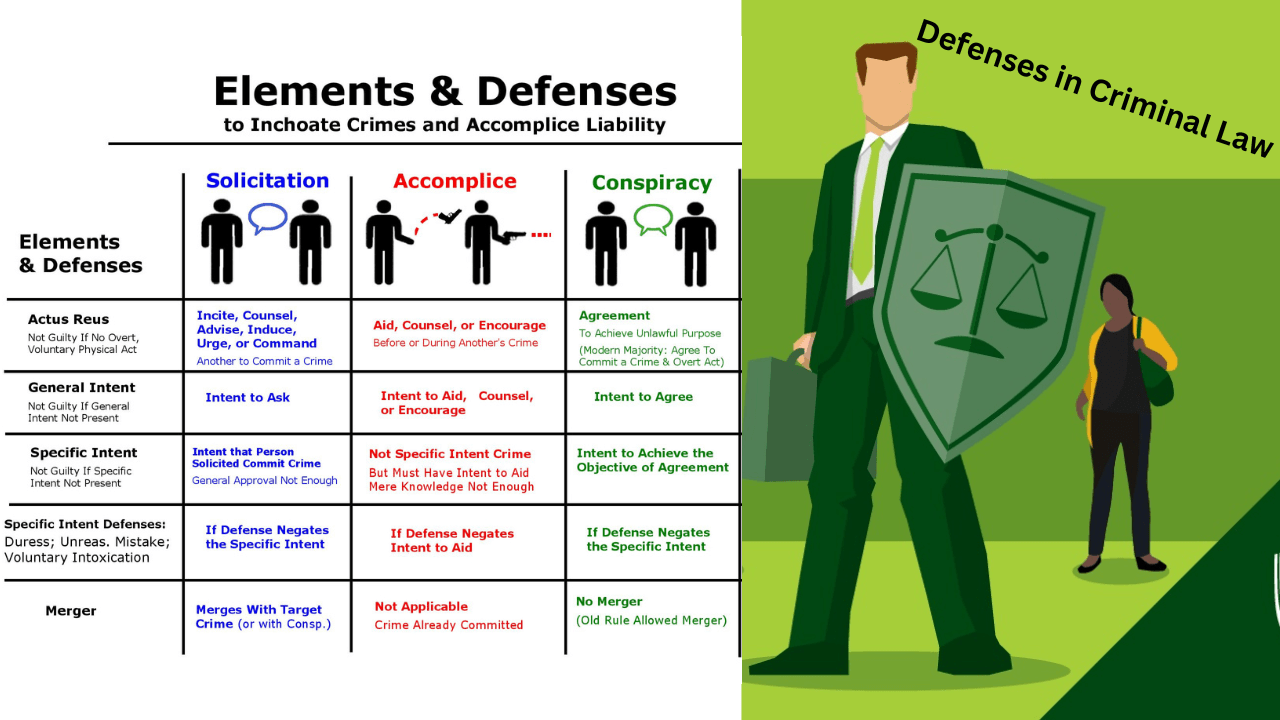Explore the intricacies of legal defenses in criminal law, understanding your rights, and potential strategies for a robust defense. Dive into this informative guide now.
Table of Contents
Introduction:
Legal defenses in criminal law are essential components of ensuring a fair and just legal system. Whether you find yourself accused of a crime or are simply curious about how the legal system works, this comprehensive guide will unravel the complexities surrounding legal defenses.
Understanding Legal Defenses in Criminal Law:
Legal defenses serve as shields against criminal charges, protecting individuals from unwarranted convictions. These defenses can vary, encompassing a range of strategies and arguments designed to challenge the prosecution’s case.
Key Legal Defenses:
Self-Defense:
- In situations where an individual uses force to protect themselves from harm, the concept of self-defense becomes crucial. This defense argues that the accused acted out of necessity to protect their well-being.
Insanity Defense:
- The insanity defense asserts that the accused, due to mental illness, lacked the capacity to understand the nature and consequences of their actions. It’s a complex defense that requires expert testimony.
Duress and Coercion:
- If someone commits a crime under threat or coercion, claiming duress can be a valid defense. It argues that the accused had no real choice but to commit the unlawful act.
Consent:
- In certain situations, the defense of consent can be raised. This is commonly seen in cases involving assault or battery, where the alleged victim may have willingly participated.
Statute of Limitations:
- This defense argues that too much time has passed since the alleged criminal act, and therefore, the accused cannot be prosecuted.
Utilizing Legal Defenses:
Understanding when and how to employ these defenses is crucial. Early consultation with a skilled defense attorney can make a significant difference in the outcome of a case.

FAQs:
Can anyone use legal defenses in a criminal case?
- Yes, legal defenses are available to anyone facing criminal charges, and consulting with an attorney is recommended to explore the best strategy.
What is the most common legal defense?
- Self-defense is a frequently used legal defense, especially in cases involving assault or homicide.
How does the insanity defense work?
- The insanity defense requires expert testimony to establish that the accused was not mentally competent at the time of the alleged crime.
Is there a time limit for using the statute of limitations defense?
- Yes, the statute of limitations defense must be raised at the earliest opportunity, typically during the initial stages of the legal proceedings.
Can consent be a defense in all criminal cases?
- Consent is a viable defense in certain cases, such as those involving assault or other crimes where voluntary participation is a factor.
Conclusion:
Legal defenses in criminal law play a pivotal role in ensuring a fair and just legal system. Whether it’s self-defense, insanity, or consent, understanding these defenses is essential for anyone navigating the complexities of criminal charges.
If you find yourself facing legal issues, always seek the guidance of a qualified attorney to explore the best defense strategy tailored to your case.

